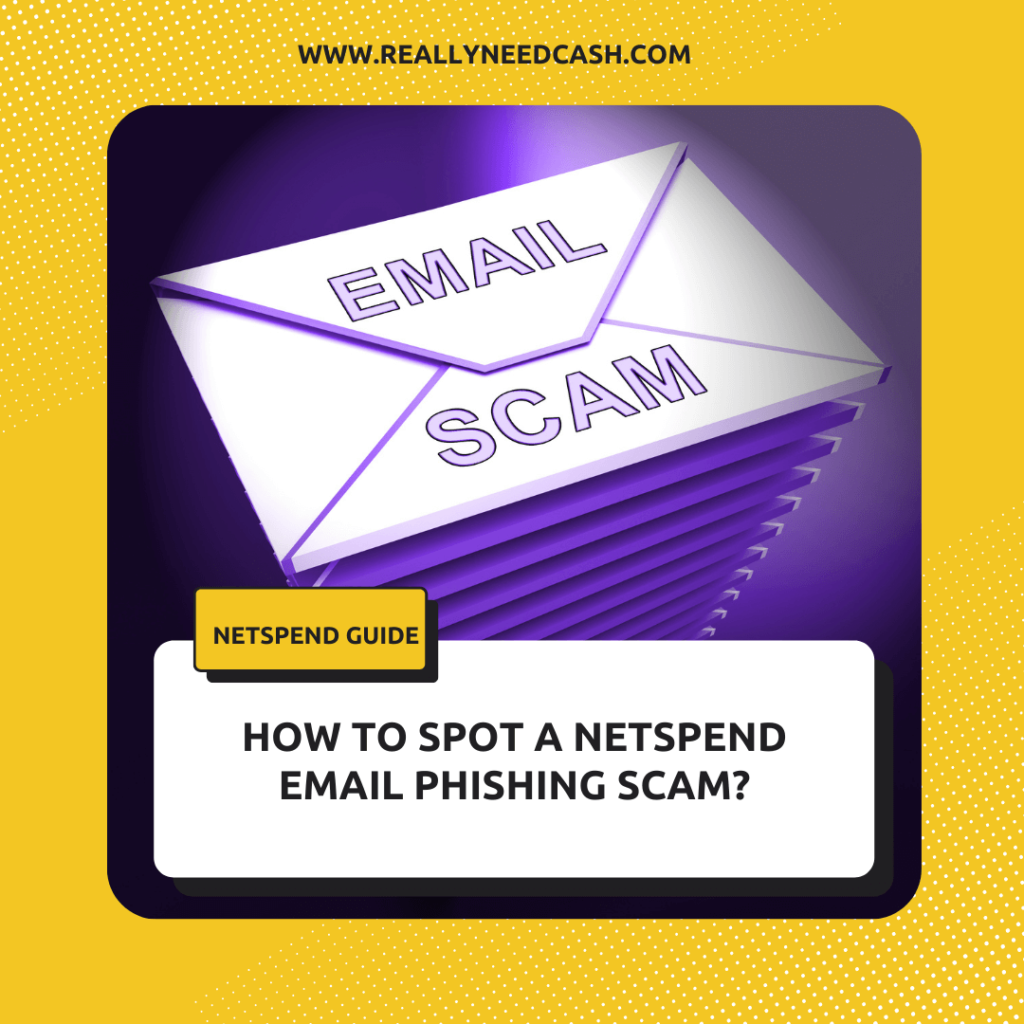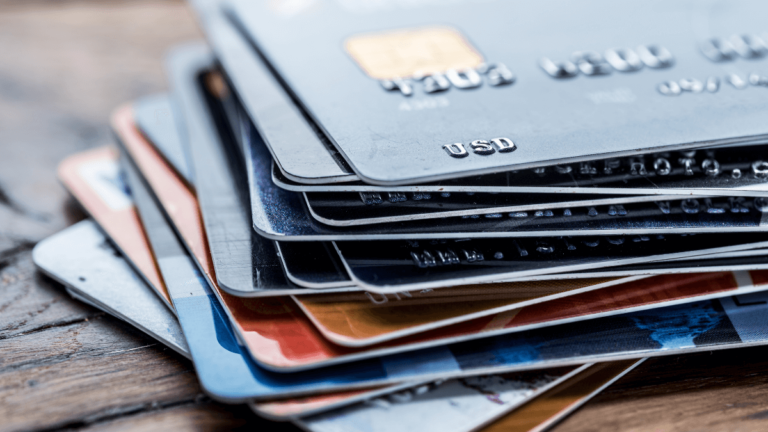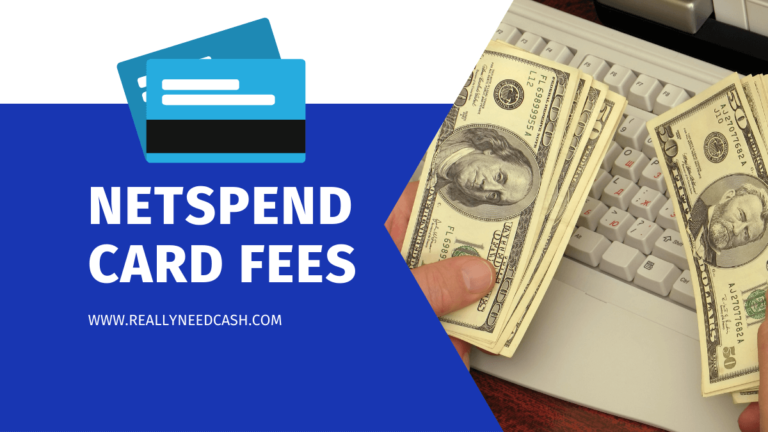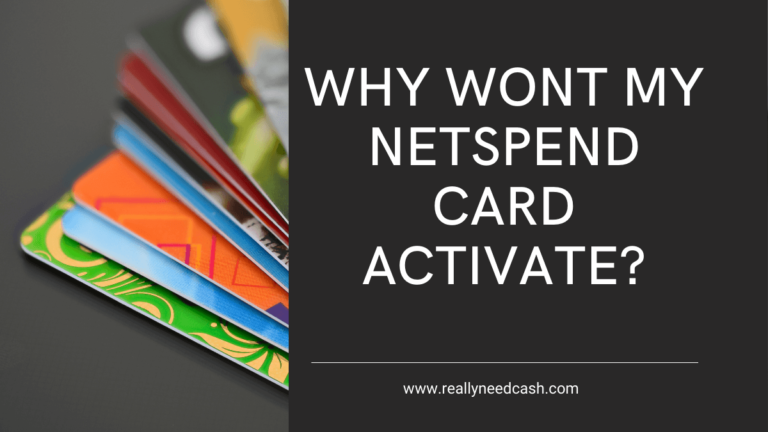One of the most common NetSpend email phishing scams involves sending an email that fraudulently claims to be from NetSpend. Scammer may send an email with a link saying that you have won money from NetSpend and the link may ask you to enter sensitive information or sign into your NetSpend account.
A guide to potential scams dropping Netspend’s name in their emails, together with tips on how to avoid such scams
Once you’ve signed up to Netspend, Netspend will never send you unsolicited emails, so if you do spot one, it’s a scam by another organization. Netspend will not request your account details by email.
Scammers will try absolutely anything to get money or passwords out of you. They’re unscrupulous. But the thing is, they’re getting better and better at doing it.
In this article, we’re going to look at Phishing scams, whereby a scammer pretends to be from a particular organization, such as Netspend and requests something from you by email.
Read: How to Spot Cash App Email Scams?

Giving away your email address
Whenever we sign up for something online, we inevitably have to enter our email addresses. It’s kinda like an online passport.
But it’s not just what you’re signing up for that can see your email address. Any hacker can take advantage of you giving your email address out online, and start sending you unsolicited emails.
Junk or spam folders
Thankfully, however, most email accounts are quite effective at protecting you against this, by setting up a junk or spam folder.
But, even the most effective junk email blockers can let some unsolicited emails slip through the net and make their way into your inbox.
And sometimes it’s good to check your junk folder anyway, because very often important emails can end up in there, as well.
Spotting a NetSpend Phishing Email
If an email from a bank or store or credit card or Netspend has ended up in your junk email folder, then chances are it’s a phishing scam, designed to pry information from you in order to access your account and your money.
Sometimes such emails can be easy to spot because they use poor English, make spelling and grammatical errors, leave out important logos or trademark information, or look more like an internal email than a more clear and professional email aimed at customers.
Sadly, however, phishing scammers do learn from their mistakes, and they get better and better at appearing to look genuine. They can fool even the most skeptical of people.
Some phishing emails can break through the junk email net, and can really pass themselves off as appearing genuine. They can be written in perfect English, feature corporate logos, feature genuine company addresses, and mimic other emails in your inbox from the actual companies you tend to receive emails from.
Sometimes you will receive an email from a company you don’t even have an account with. And this is one of the most obvious ways to spot a scam.
Sometimes a phishing email will state a reference number for the issue in the subject line in order to look like it’s from a genuine company. But these can be easily made up, so if you don’t recognize the reference number, this could be a phishing scam.
What is a Phishing Email Scam?
A phishing email is any email whereby the scammer in question is trying to get information from you in order to obtain information such as your login credentials or even your bank details.
And when such information is in the hands of unscrupulous scammers, there’s no telling what they might do. They could potentially empty all your bank accounts completely, which would be devastating.
Phishing email scams are not as obvious as they used to be. They are more sophisticated, and rather than simply asking for your details straight out, they are more likely to ask you to click on a link and log in.
Examples of Phishing Email Scams
For example, you may receive an email saying that your account has been compromised and that you need to log in to rectify the situation and change your password.
And once you have “logged in” to the “site”, you may also be asked a series of other questions in order to verify that you are who you say you are. These questions may be the very security questions that your bank keeps on record.
Once this information is given up, you can kiss goodbye to any money you might have in there.
Another example of such a scam may be that the sender is saying that you are owed a credit or payment. Sometimes this will be a very significant amount of money, in order to entice you into taking action.
Emails from Netspend
But when you get an email that appears to be from Netspend, complete with logos and company address, this may give you cause for concern.
This is because it is against Netspend’s policies to send its customers any unsolicited emails. So if you do spot one, this should get alarm bells ringing.
What to do if you receive an unsolicited email from Netspend?
By this point, you should have a good idea of what a phishing email scam is and how professional it may look. And with practice, you will get better at spotting them.
As we have made clear, Netspend does not send unsolicited emails, so any unsolicited email that appears to be from is not from them and is in fact a phishing scam.
Whatever you do, do not click on any of the links in the email, and definitely do not offer up any of your personal account information.
If you are suspicious about it and want to clear up whether it is in fact genuine or not, you can always ring Netspend’s customer service department and clear it up with them once and for all.
You could simply delete the email if you wish, but Netspend would prefer it if you were to report it to them immediately. If they are aware of an ongoing scam, they can then inform other customers about it.
Bottom Line
Not only will Netspend never send you an unsolicited email, but they also will never email or text to ask for your card number, PIN, social security number, online username, or password.
If an email from Netspend appears to request this from you, it is in fact a clear-cut phishing scam and should be reported to Netspend immediately.






